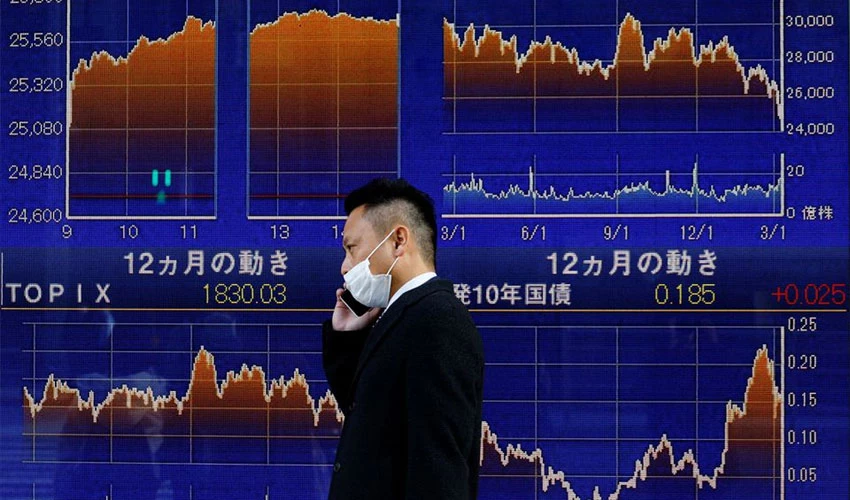Asian stocks perk up as China hopes overshadow inflation fears

HONG KONG (Reuters) - Asian shares clawed back earlier losses on Tuesday as signs that China's economic pain may be gradually abating amid easing COVID-19 curbs overshadowed broader investor concerns about a global inflation shock.
Also lifting sentiment in the region were details of Beijing's new policy support, which includes cash handouts for hiring graduates and support for internet companies' offshore listings.
MSCI's broadest index of Asia-Pacific shares outside Japan (.MIAPJ0000PUS) added 0.7%, reversing losses from earlier in the session and led by gains in China and Hong Kong.
Outside of China, however, things were mixed amid persistent worries about global inflation. Japan's Nikkei (.N225) was flat. S&P 500 futures rose 0.2%, FTSE futures were unchanged and Euro STOXX 50 futures fell 0.2%.
"This broadening of inflationary pressures that is really about food and energy is not just a European story, it is going to be a global story," said Rodrigo Catril, senior currency analyst at National Australia Bank in Sydney.
US treasuries, meanwhile, slumped on return from Monday's US holiday, sending the yield of the 10-year bond up nearly 10 basis points (bps) to 2.8404%.
German bund yields also rose after consumer prices in the country increased at their fastest pace in half a century.
Eurozone inflation data is due later on Tuesday, with risks to the upside and nerves heightened by oil prices hitting two-month highs thanks to Europe's vow to cut Russian oil imports.
Hawkish remarks from US Federal Reserve Governor Christopher Waller also deflated hope that the Fed might pause for breath after hikes in June and July.
"I am advocating 50 (basis point hikes) on the table every meeting until we see substantial reductions in inflation. Until we get that, I don't see the point of stopping," Waller said.
Fed funds futures fell sharply in Asia, as investors braced for relentless interest rate rises that would push the benchmark rate towards 3% by mid 2023.
The dollar gained and was last up about 0.3% at $1.0751 per euro , and buying 123.93 yen , also a gain of about 0.3%.
The trade-sensitive New Zealand dollar fell from a three-week peak, while the Australian dollar found support and steadied at $0.7195 on positive domestic data and relief that China's slowdown seemed to be easing.
SLOWER DECLINES
Helping sentiment slightly, China's official PMI for May showed factory activity continued to decline but at a slower pace than in April.
That, combined with signs of support from authorities and easing lockdowns in Shanghai, was enough for cautious optimism to return to financial markets.
China's benchmark Shanghai Composite Index (.SSEC) was up 1%, while the Hong Kong benchmark (.HSI) edged 0.6% higher. China's yuan was steady at 6.6640 per dollar despite greenback gains elsewhere.
"Whether Shanghai could deliver an effective and sustained opening up is key," said Bruce Pang, head of macro and strategy research at China Renaissance Securities Hong Kong.
"New cases might emerge (and) disrupt the resumption of production ... this will impact different stock sectors unevenly," he said.
The regional fallout is also already deep with Japan logging a sharp fall in April factory output as Chinese demand shrivelled.
In commodity markets, Brent crude futures touched a two-month top of $123.58 a barrel after the European Union vowed to slash imports of Russian oil by year's end.
The stronger dollar pushed spot gold a fraction lower to $1,853 an ounce.
Bitcoin rallied hard overnight, jumping nearly 8% and topping $32,000 for the first time in three weeks. It sat just below there at $31,680 in late Asia trade.







